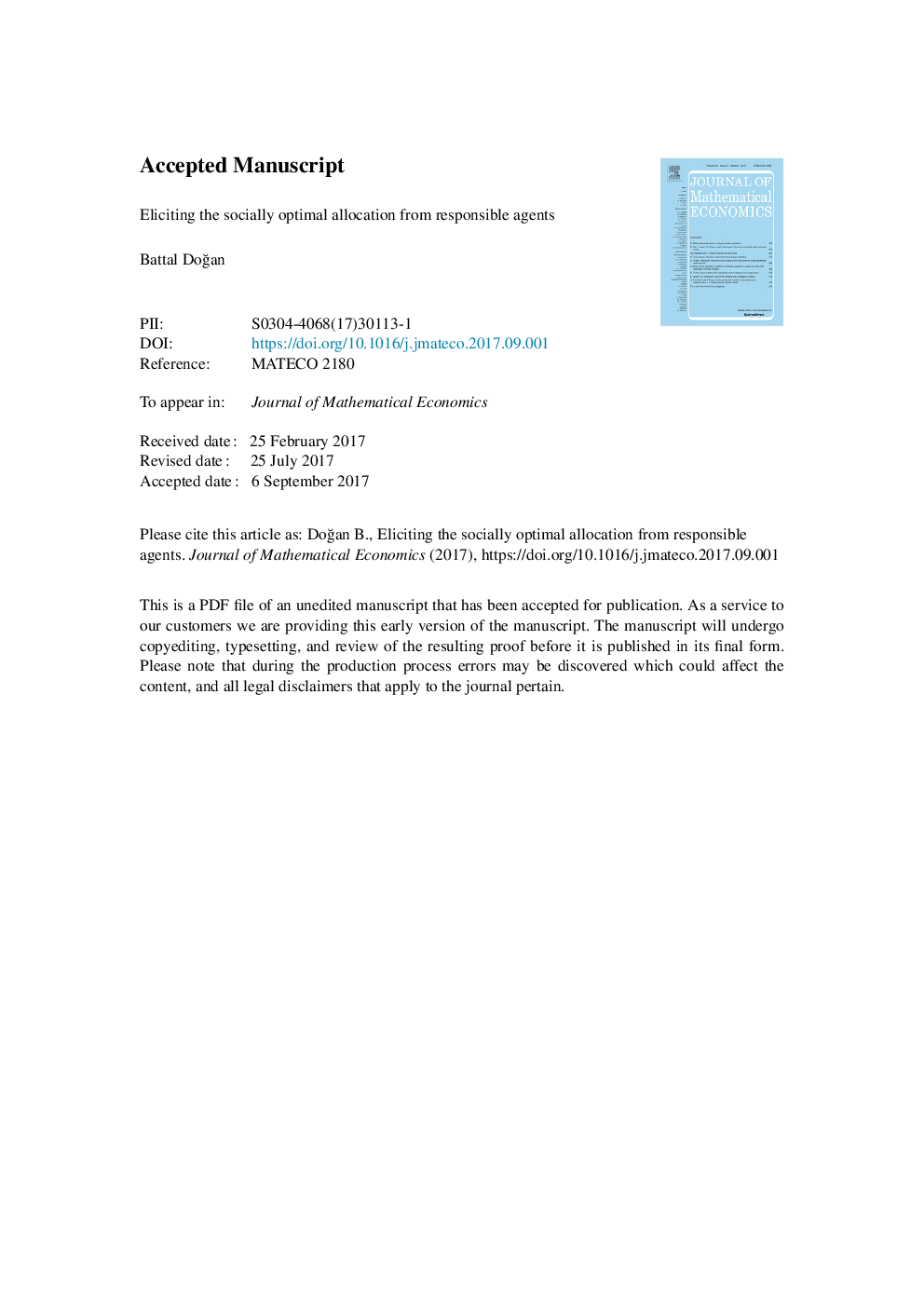ترجمه فارسی عنوان مقاله
تخصیص اجتماعی بهینه از عوامل مسئول
عنوان انگلیسی
Eliciting the socially optimal allocation from responsible agents
| کد مقاله | سال انتشار | تعداد صفحات مقاله انگلیسی |
|---|---|---|
| 150144 | 2017 | 26 صفحه PDF |
منبع

Publisher : Elsevier - Science Direct (الزویر - ساینس دایرکت)
Journal : Journal of Mathematical Economics, Volume 73, December 2017, Pages 103-110
ترجمه کلمات کلیدی
تعادل نش، پیاده سازی، مسئولان،
کلمات کلیدی انگلیسی
Nash equilibrium; Implementation; Responsible agents;
ترجمه چکیده
ما در حال طراحی یک مکانیزم برای تخصیص اشیاء در میان عوامل بدون انتقال پولی هستیم. یک تخصیص اجتماعی بهینه ای وجود دارد که معمولا توسط عوامل شناخته شده است اما توسط طراح قابل مشاهده نیست. طراح احتمالا اطلاعاتی در مورد وجود عوامل مسئول دارد. یک عامل مسئول، زمانی که بی تفاوتی بین اشیاء خود را در دو تخصیص مختلف، ترجیح می دهد تخصیص اول به دوم اگر تخصیص اول نزدیک به تخصیص بهینه از دوم است، به این معنی که همه عوامل که اشیاء مطلوب خود را در تخصیص دوم، اشیاء بهینه خود را نیز در تخصیص اول اختصاص داده و حداقل یک عامل دیگر در تخصیص اول، شیء بهینه خود را دریافت می کند. ما نشان می دهیم که اگر طراح می داند که حداقل سه عامل مسئول وجود دارد، حتی اگر هویت عوامل مسئول شناخته شده نباشد، تخصیص بهینه می تواند منجر شود.

